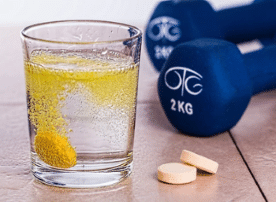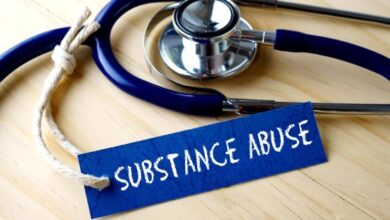8 Signs That Alcohol is Your Go-To Coping Mechanism

Drinking alcohol is not only acceptable but even expected in a number of social situations. Alcohol can also often seem like a quick fix when life throws challenges your way. But when does drinking alcohol become an issue?
Recognizing the signs that alcohol is your go-to coping mechanism is very important for taking steps toward a healthier lifestyle. Learn how to identify them and how to act on them before the problem becomes even more serious.
What Are Coping Mechanisms?
Coping mechanisms are tools that people use to manage stress. But you need to know that not all tools are built the same. Pouring yourself a drink after a long day might feel soothing, but when one glass turns into several on a regular basis, it might be time to reassess this habit.

Sign 1: You Drink to Relieve Stress Regularly
It starts simply. A beer after work to unwind or a glass of wine to ease the tension from a stressful day. But before you know it, it becomes your primary way to calm down. This way, alcohol levels go up from a casual beverage to a necessary stress reliever. Over time, this pattern can become harmful since alcohol will become the only solution you feel works.
Sign 2: You Use Alcohol to Manage Emotions
We all feel sad, frustrated, or lonely at times, and these are the times when we seek comfort. However, if you find yourself reaching for a drink every time you feel one of a combination of these, it could signal a deeper issue. Relying on alcohol to stabilize your emotions is very tricky, as it only drowns the feelings temporarily and can lead to increased emotional instability.
Sign 3: Preferring Alcohol Over Other Activities
Your friends invite you to their place for a get-together, but you would rather spend the night by yourself, drinking and scrolling on social media. Initially, skipping a social gathering to drink alcohol might not seem like a big deal. But in no time, you might be choosing to avoid spending time with loved ones in order to indulge in alcoholic beverages—and this is a red flag. This happens gradually, so you won’t likely even notice that it starts impacting your social life.
Sign 4: You Have Increased Tolerance Toward Alcohol
As you consume alcohol on a regular basis, your body gets used to the alcohol being there. Over time, the same amount of alcohol that once achieved the feeling of being relaxed doesn’t cut it anymore as your body gets more efficient at processing alcohol and builds tolerance.
That means that you will need more amounts of alcohol to achieve the feeling that one glass used to give you not so long ago. This need for more to get the same effect is a telltale sign of tolerance building, which is also a clear sign that dependence is becoming a problem. Realizing this is an important step if you want to achieve lasting sobriety and change your lie.
Sign 5: You Experience Withdrawal Symptoms
With time, your body gets used to getting a certain amount of alcohol, and if you don’t drink, you will feel withdrawal symptoms. Some of the most common symptoms are:
- Headaches
- Irritability
- Nausea
- Shakiness
These symptoms are very uncomfortable, and they show that your body is over-accustomed to alcohol.

Sign 6: Neglecting Responsibilities
As drinking alcohol becomes one of the only things that you want to do, your responsibilities will start to be less of a priority. Some of the following might happen:
- Decreased work performance
- You don’t attend as many family events
- Household duties won’t be a priority, leading to increased stress for the whole household
These disruptions signify that alcohol is no longer just a leisure activity but a priority that’s interfering with your daily life and your professional and personal relationships.
Sign 7: You Continue Despite Negative Consequences
At this point, you know that drinking is causing harm to many areas of your life—financially, health-wise, etc. But it is at this point that many people find themselves unable to stop. This is one of the biggest signs that alcohol is your go-to coping mechanism and that you need to change your relationship with it.
Sign 8: Social and Relationship Problems
Many see alcohol as a cheat to be more social, but with prolonged use, it can become a social liability. If you are frequently arguing with your family about your drinking, or your friends don’t want to spend time with you because all the activities with you involve alcohol, then it is clear that some changes need to be made.
You Are Not the Only One with This Problem
In the United States, alcohol remains a staple, with vacation-popular states like Florida seeing even higher levels of alcohol use. If you are one of many who find themselves needing professional help dealing with excessive alcohol use, don’t hesitate to reach out to a reliable alcohol treatment center in Florida. A stay at a rehab center is the safest and most efficient way to overcome your drinking problem.
Florida is not the only state dealing with the issue. Significant portions of the population in the rest of the USA engage in regular drinking. According to the National Institute on Alcohol Abuse and Alcoholism (NIAAA), about 23.5% of people aged 18 and older reported they had been binge drinking alcohol in the previous month.
Data also shows that approximately 1 in 14 Americans, or 7.2% of people aged 12 and older, have Alcohol Use Disorder (AUD). Despite its common use, not many people pursue recovery. Sadly, only less than 10% of people with AUD receive treatment. This big contrast shows a substantial gap in treatment engagement, which means that, as a society, we need to make people more aware of the dangers of alcohol addiction.
Act If You See the Signs That Alcohol Is Your Go-To Coping Mechanism
Being aware of these signs is the first step toward doing better. But the next steps include:
- Talking to a doctor about your concerns
- Connecting to support groups
- Reaching out to a treatment center for a program tailored to alcohol dependency

Use These Signs as a Wake-Up Call
Recognizing the signs that alcohol is your go-to coping mechanism is important for anyone who finds themselves leaning on alcohol more often than they’d like. However, understanding these signs can guide you toward making positive changes and boosting your energy levels. The beginning of the process of letting go of alcohol will be difficult, but hang in there, and you will see your life getting better every day.





